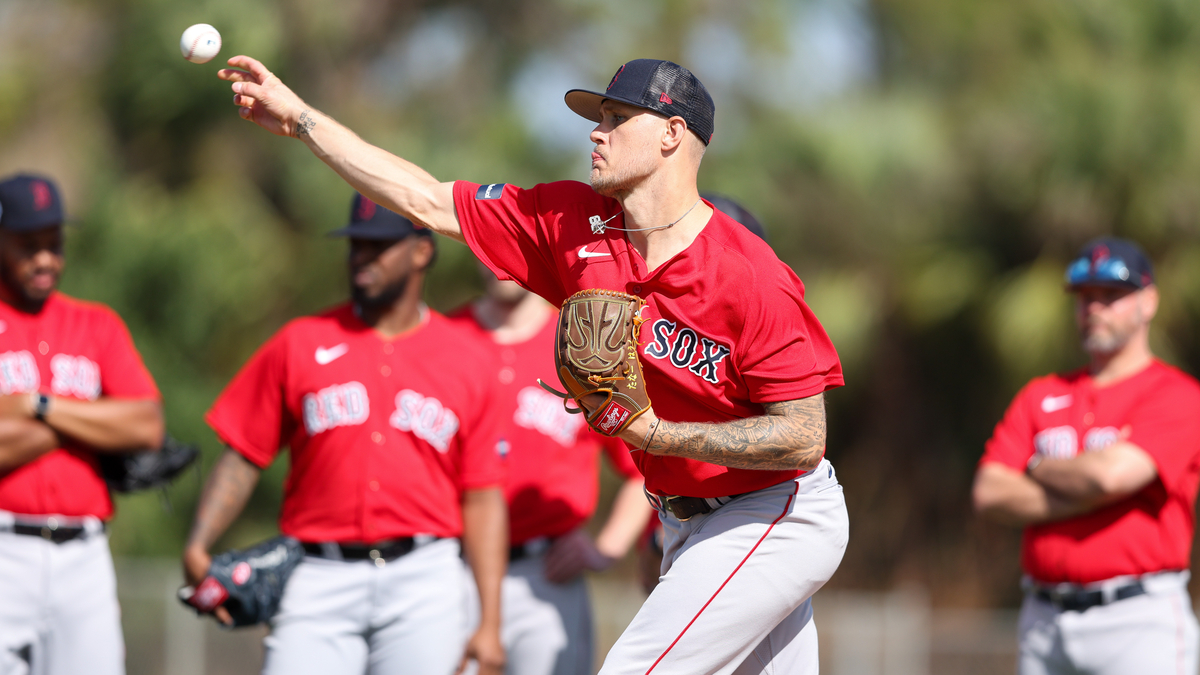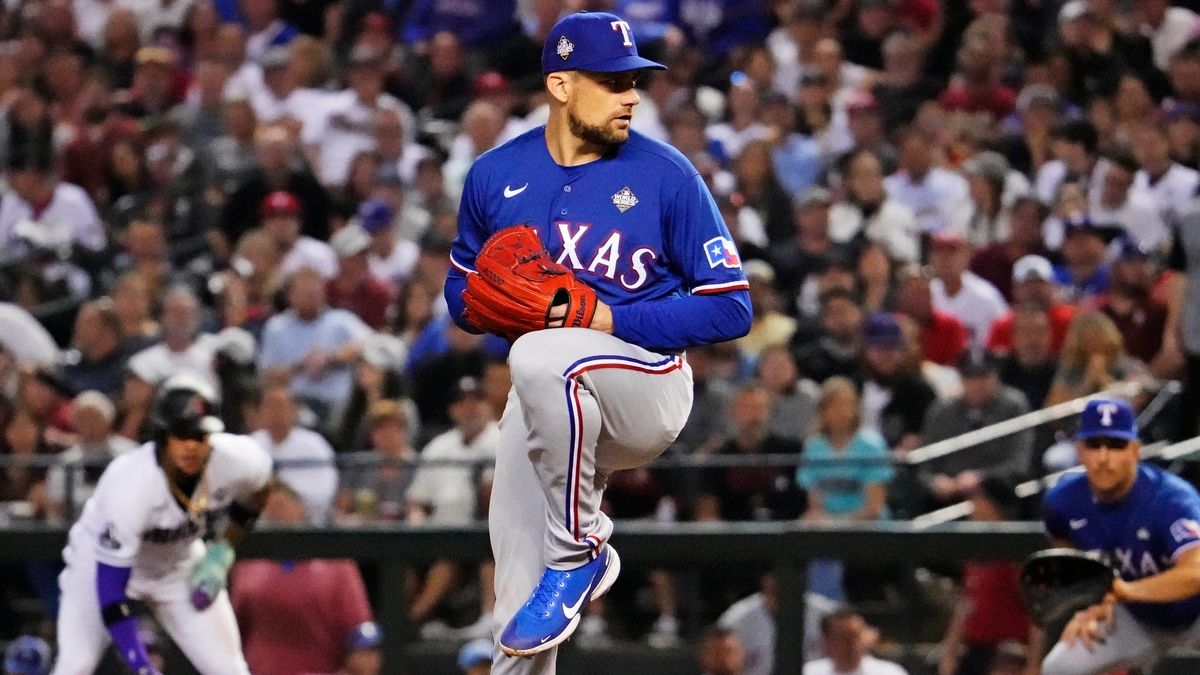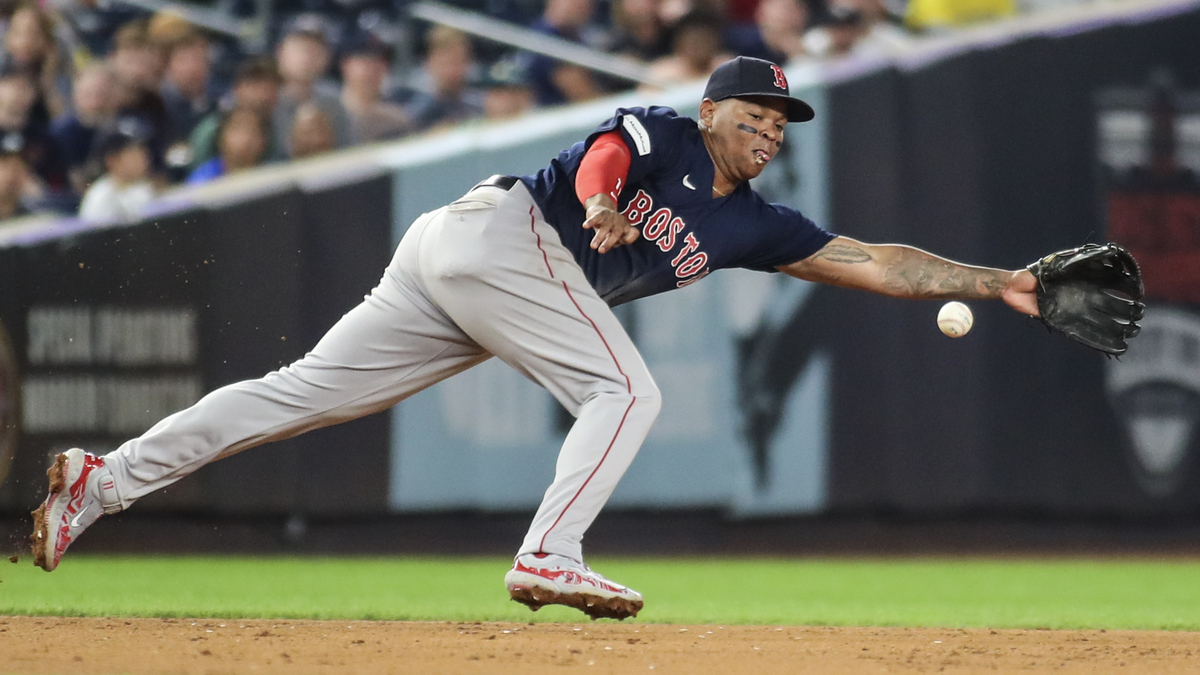Craig Breslow addressed the media on Thursday for the first time since being named the Boston Red Sox' chief baseball officer.
Breslow replaced Chaim Bloom as the head of baseball operations after a three-week interview process that included consultations from former Red Sox players. A few of those players -- namely David Ortiz and Dustin Pedroia -- were Breslow's teammates during the club's 2013 World Series run.
A 12-year MLB veteran, Breslow pitched for seven different teams and had two stints with Boston (2006, 2012-15). After retiring as a player, the Yale graduate worked under ex-Red Sox general manager Theo Epstein in the Chicago Cubs front office. He most recently served as the Cubs' assistant GM/vice president of pitching.
Stay in the game with the latest updates on your beloved Boston sports teams! Sign up here for our All Access Daily newsletter.
Breslow has minimal experience negotiating with free agents, making trades, and other duties that come with leading a baseball front office, so the jury is out on the 43-year-old heading into a pivotal Red Sox offseason. However, he sounded confident while answering questions on Thursday and assured it would be an active winter for the organization.
Here are the highlights from Breslow's introductory press conference:
MORE RED SOX
Ownership's commitment to winning
"One thing that became very, very clear through this process was the unwavering commitment to winning from ownership. And so, I think the responsible, prudent path of a front office operation is to kind of search all corners for those opportunities, to kind of overturn every stone, to kind of unearth every option. There are multiple pathways to building sustainable winners and we need to be willing to run down all of those."
Is this team close to contending?
"I think this is a good team that does a lot of things really, really well. I also think the opportunities to improve are pretty well-documented. And when people think about offseason work -- and this will be a theme that I'll really try to hammer -- we generally tend to talk about the acquisition side of things. I think it's really important not to lose sight of the opportunity to develop our players and continue to push those, and identify really clear goals and build really detailed and comprehensive plans around them and ensure that we're executing them."
What will be the Red Sox' organizational philosophy?
"The goal here, the goal anywhere is not to build the most competitive minor league team. It's to build major league value and major league contributors. And then we ended up needing to kind of create an overarching philosophy behind that goal and find competent, skilled coaches who are able to execute.
"The most important takeaway that I've found, and I think it's true of pitching development, I think it's true of any discipline, is that given the size of today's offices, given the ubiquity of information available, it's really easy to get caught up in trying to find the newest, the rightest, the most current information when it turns out that getting an organization directionally aligned behind something is far more powerful."
"I know what it takes to win here."
"I understand that some of you will see me as another Ivy League nerd with a baseball front office job. It's true. I am that. But I'm also a 13-year big-leaguer and a 2013 Boston Red Sox World Series champion, and I know what it takes to win here, and I'm willing to take the hard decisions necessary to deliver."
What Breslow learned from 2013 World Series club
"I think I would point to the pillars of healthy organization-building being acquisition, development, and optimization. And the complex interactions among those three things. And so, I think what 2013 told us above all else is there is heavy lifting and incredible work to be done in a front office in terms of bringing players together and organizing a baseball operation.
"And then, there's the opportunity to get more out of the group of players that's in the clubhouse every single day, and that's the responsibility of the entire organization. It's the responsibility of the analytics department to try and identify and leverage competitive advantages, of the coaching staff to keep players moving in the same direction, the performance staff to keep guys on the field. And so, what I've learned from 2013 is you can't look at any one of those things in isolation, but you have to appreciate the complex interactions of all three."



